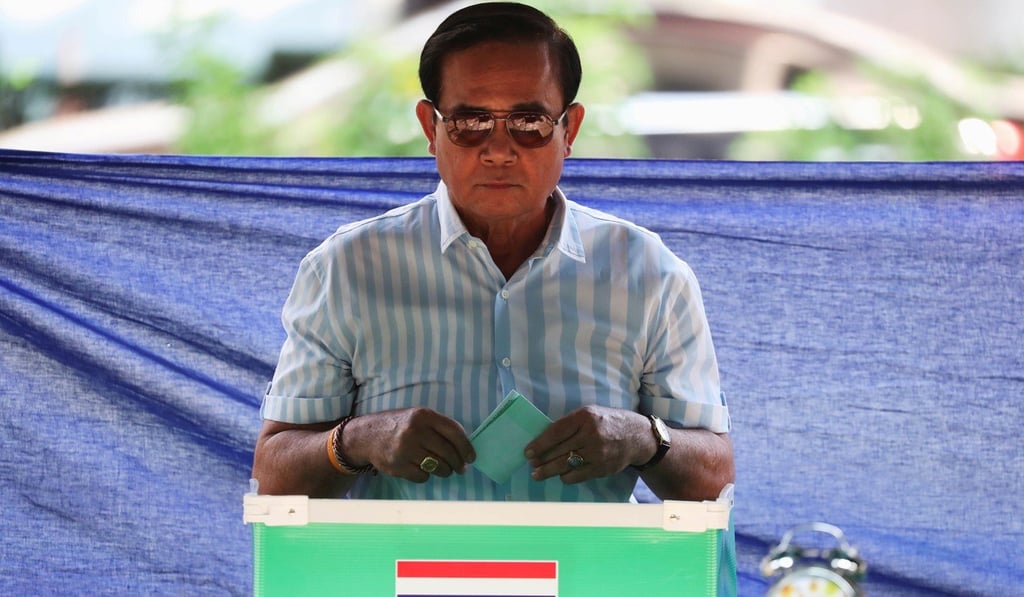Thanathorn Juangroongruangkit, Thai Future Forward Party leader, confirmed as prime ministerial challenger to junta chief Prayuth Chan-ocha
- ‘Democratic front’ alliance reaches consensus that Thanathorn is their man to represent them in high-stakes parliamentary vote set for Wednesday
- Decision pitches him against current prime minister and junta chief Prayuth Chan-ocha, who has ruled since the military came to power in a 2014 coup

Thailand’s Future Forward Party leader Thanathorn Juangroongruangkit was on Tuesday nominated by an alliance of seven parties as their candidate for prime minister a day ahead of a parliamentary vote to fill the post following disputed elections in March.
The consensus reached by the country’s “democratic front” pitches him against current prime minister and junta chief Prayuth Chan-ocha, who has ruled since the military came to power in a 2014 coup.
The alliance is counting on the 246 seats it holds in parliament’s lower house to end Prayuth’s tenure when MPs vote on Wednesday to officially restore civilian rule.
Confirming his bid for the top job, Thanathorn said: “Tomorrow is an important day. It will be the day when the direction of the nation is decided, whether dictatorship or democracy will be chosen.

“I am ready to be a prime ministerial candidate. I am ready to be a prime minister.”